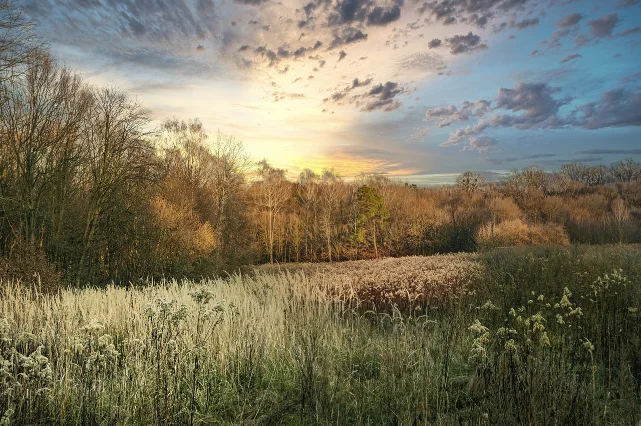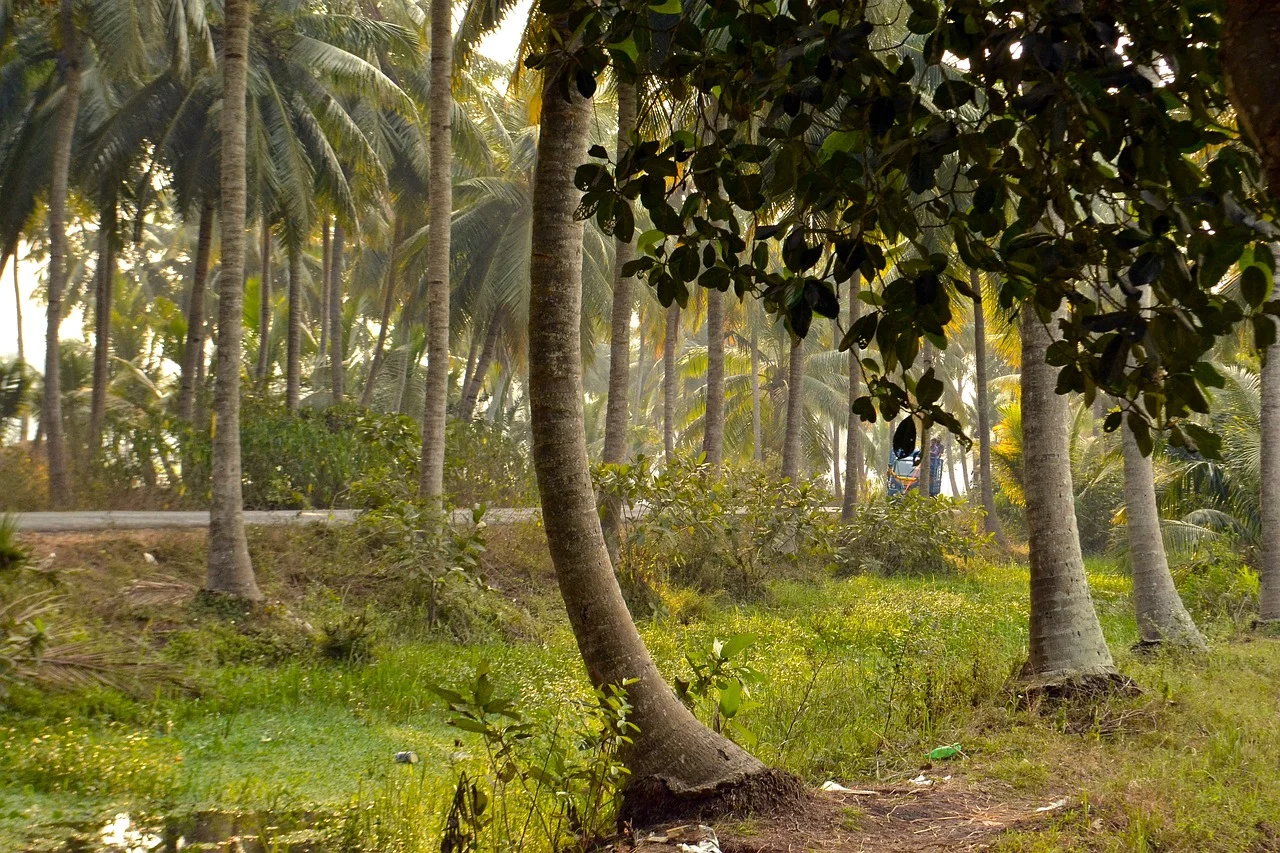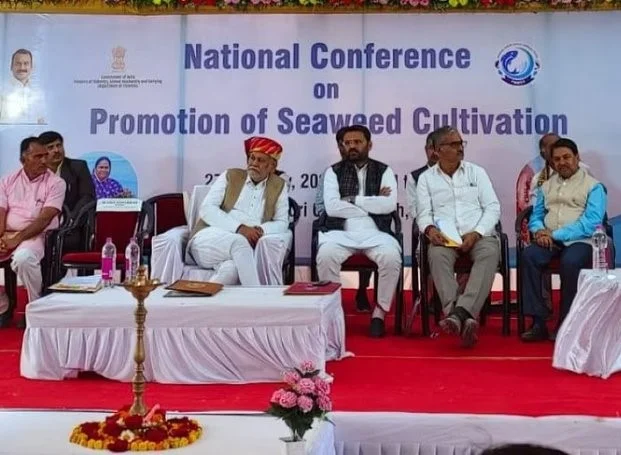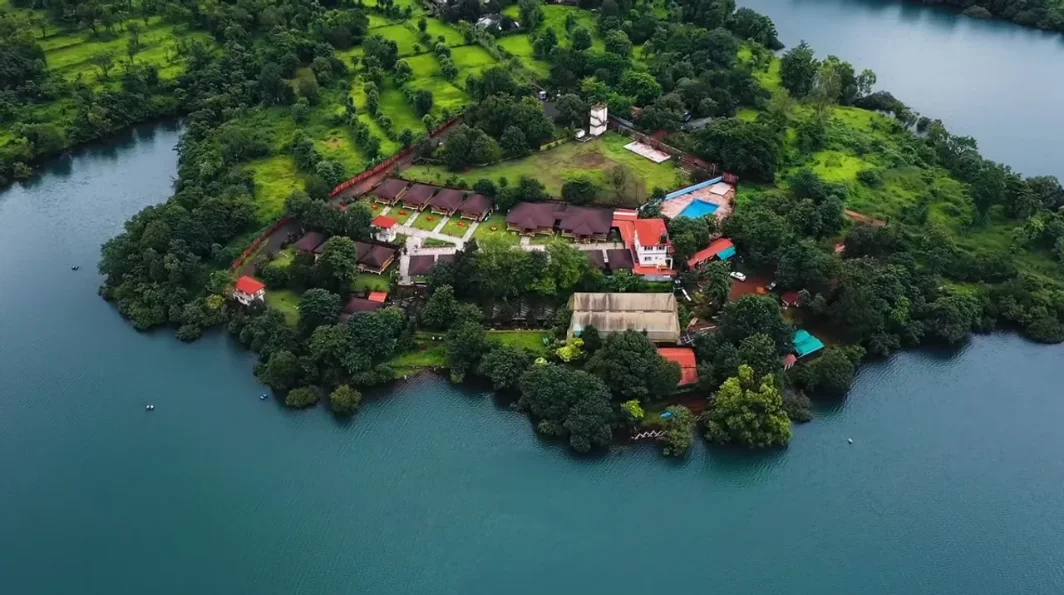“What are your favorite memories with your grandparents?” Luv Shekhawat cherishes his childhood birthdays spent in the Jaipur forests with his paternal grandfather. They enjoyed eating fruits while listening to the birds sing. Reflecting on those moments, Luv fondly recalls them as “good times.”
Luv highlights the benefits of having a grandfather who worked as a Divisional Forest Officer (DFO). He mentions that besides the perks, it nurtured his love for nature and wildlife.
In 2010, Luv had a strong sense of déjà vu when he purchased land in the southern part of Rajasthan’s Alwar, within the Sariska Tiger Reserve. He felt a deep connection to the forest.
He expressed, “I immediately knew that the forest was where I truly belonged. It felt like destiny calling me back.”

Despite the rugged terrain and challenges posed by being close to the famous (and sometimes controversial) Sariska Tiger Reserve, Luv remained enthusiastic about bringing the area to life. He created a nature retreat called Utsav Camp, named after his paternal grandmother.
Also Read: How I Moved From City Life To Mountains To Build A Kumaoni Mud Homestay
Located against the stunning backdrop of the Aravali Hills, the 35,000 square meter retreat was carefully constructed using local materials, embracing nature in every detail. Luv integrated acacia, terracotta, bamboo, cane, sandstone, and rosewood into the lodge’s decor and architecture, giving each element a unique personality.
“In this haven, days unfold simply, time flows leisurely, and mornings are greeted by the gentle rays of the sun, slipping into the cabins and filling them with light,” Luv shares proudly about his creation, emphasizing nature’s influence.
The retreat exudes a refreshing and playful atmosphere. Guests can choose from 20 rooms, divided into nine stone cabins, eight Swiss tents, and three forest bungalows.
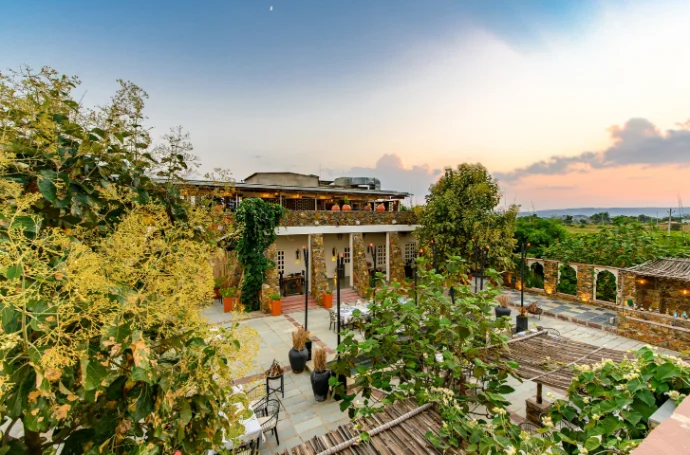
The stone cabins prioritize sustainability, constructed from raw rubble. The canvas tents immerse guests in nature, with porches opening to the vast outdoors. As for the forest bungalows, they stand out against the hills, with glass facades inviting guests to feel connected to the wilderness.
Luv explains that the retreat’s raw and rustic appearance was precisely what he aimed for from the start, sharing stories with anyone who notices.
Luv’s journey from being a professional hotelier in Jaipur to becoming a naturalist running his forest lodge is quite a tale. He had always dreamt of starting his own venture, blending his culinary skills with his passion for nature. A lodge seemed like the perfect fit.
But there was a lot of hard work ahead.
Also Read: The Story of Varanashi Organic Farms: From Treehouse Retreats to Compost Workshops
“I realized I needed to grasp the technical side of wildlife. Watching my grandfather, I understood the value of getting your hands dirty and learning firsthand,” Luv explains.
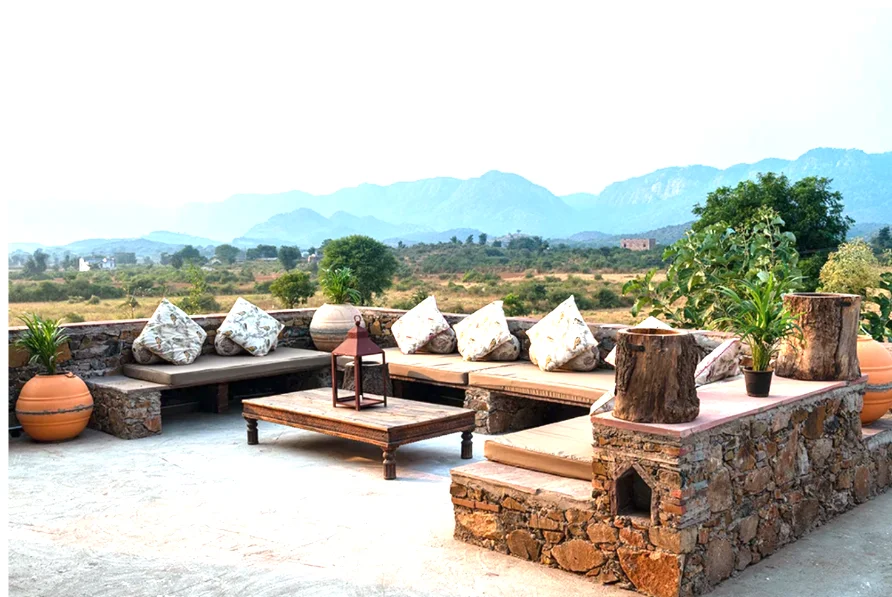
And so, Luv embarked on his journey to become certified as a naturalist—a decision he now sees as crucial. As for why he chose this particular location, well, that’s a story worth telling in itself.
Once renowned as the heart of tiger tourism in Rajasthan, the 800 square kilometers of the Sariska Tiger Reserve provided an ideal habitat for these majestic creatures, with its mountains, grasslands, and cliffs. A survey conducted by the National Tiger Conservation Authority (NTCA) in 2002 counted 16 tigers in the area. However, just three years later, not a single tiger remained.
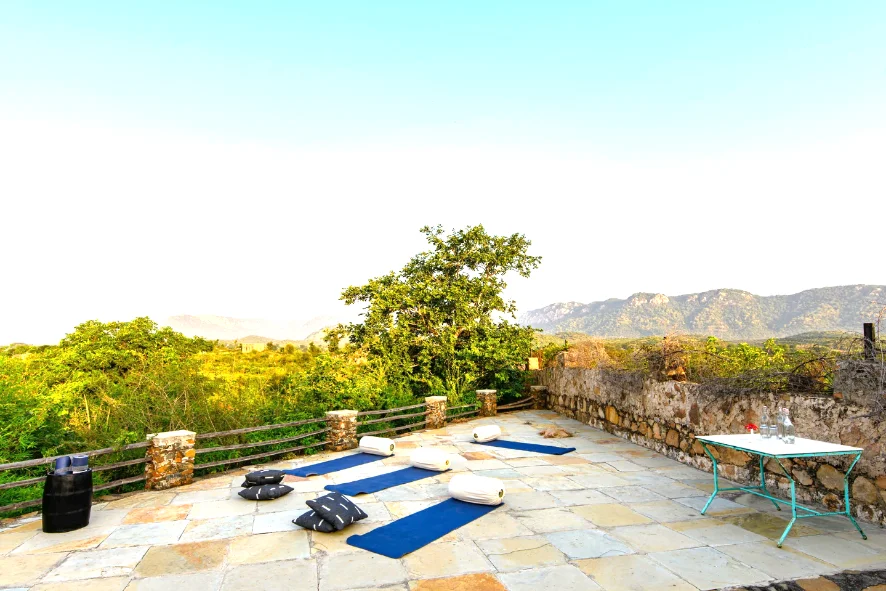
Poaching emerged as the primary culprit. A collaborative effort involving the Rajasthan police, forest department, and NTCA uncovered the perpetrators—a local poaching gang that utilized traps, poisoned bait, and other illegal methods to hunt the tigers.
In response to the crisis, the Government initiated a massive campaign to enhance tiger conservation efforts across the country and within the reserve itself. By 2021, the tiger population in the Sariska Tiger Reserve had increased to approximately 21 individuals.
Though few had ventured into starting a homestay in this region, Luv acknowledges that being a pioneer brought its own set of challenges. “The area was remote, with no proper roads or electricity,” he recounts.

Despite the hardships, Luv found inspiration in the natural landscape and its possibilities. After five years of dedicated effort, Utsav Camp was finally prepared to welcome its inaugural guests in October 2015.
Utsav Camp embodies both a glimpse into the past and a step into the future. When praised for his role in creating this masterpiece, Luv credits his 90-year-old grandfather. “He was a constant guiding force throughout the process,” Luv says, reminiscing with a laugh about moments when his grandfather corrected his mistakes during the retreat’s design phase.
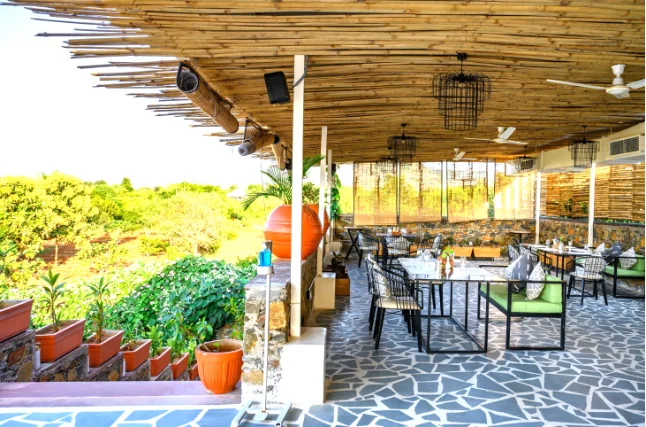
Reflecting on these memories, Luv recounts, “When I initially planted fruit trees on the land, my grandad intervened, saying, ‘You can’t plant anything anywhere.’ He stressed the importance of indigenous trees in a deciduous forest like ours. That’s when I started planting palash, neem, and jamun trees.”
Luv’s grandfather played a crucial role in advising him on building the greywater system. This system recycles wastewater, filters it, and directs it into the garden.
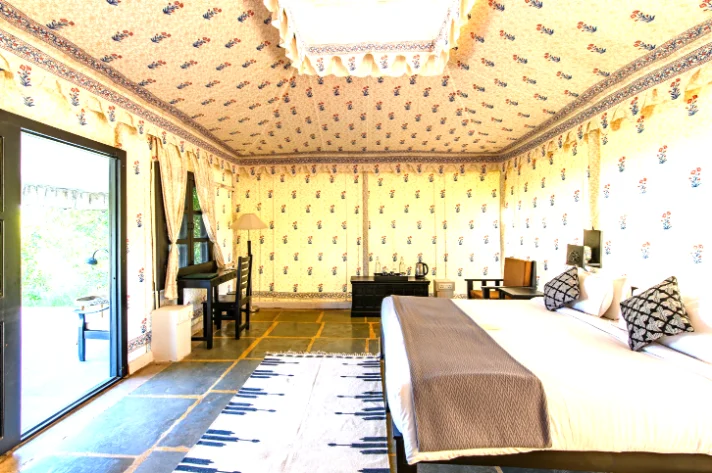
“I always valued his advice,” Luv reflects. “He belonged to the last generation trained by the British and attended the Indian Forest Institute in Coimbatore in 1945. He was among the early trained individuals who joined the Rajasthan Forest Department as a ranger and contributed to establishing Ranthambore.”
Luv remembers a specific day when his grandfather visited the site. Luv had plans to clear the garden for a “well-manicured lawn.”
“He taught me a valuable lesson that I still hold dear. He advised me to observe the dry leaves on the ground as indicators of a healthy ecosystem,” Luv shares.
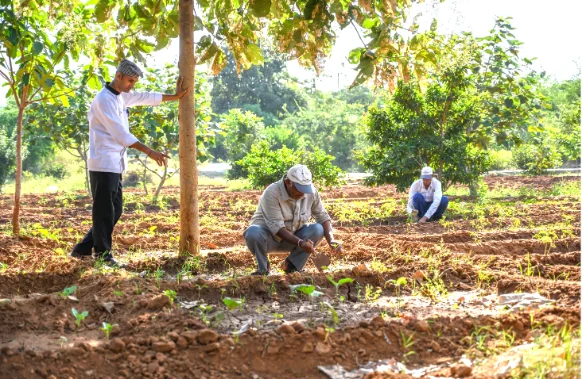
Today, Utsav Camp stands as a sustainable haven in Rajasthan, powered by solar panels and committed to sourcing produce locally.
Guests are offered a complete wildlife experience. Therefore, loud music and partying are prohibited. While Luv enjoys sharing thrilling stories and insights about the species encountered during safaris and nature walks, he always keeps the importance of his message in mind.
“Sustainability isn’t just a choice; it’s how we live our lives.”


